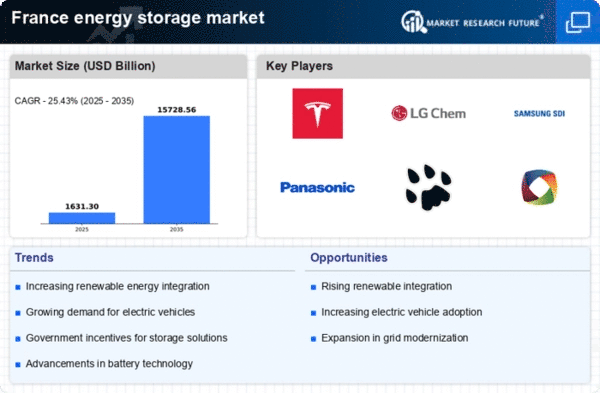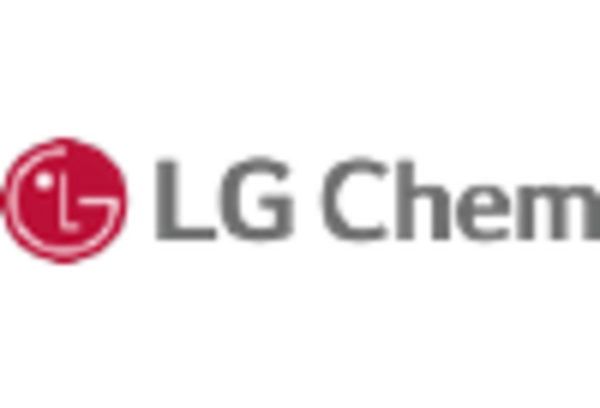Rising Demand for Renewable Energy
The energy storage market in France is experiencing a notable surge in demand driven by the increasing integration of renewable energy sources. As the country aims to achieve its ambitious targets of generating 40% of its electricity from renewable sources by 2030, the need for energy storage solutions becomes paramount. Energy storage systems play a crucial role in balancing supply and demand, particularly with the intermittent nature of solar and wind energy. In 2023, renewable energy accounted for approximately 30% of France's total electricity generation, highlighting the growing reliance on these sources. This trend is likely to propel investments in energy storage technologies, as stakeholders seek to enhance grid stability and reliability, thereby fostering the growth of the energy storage market.
Consumer Demand for Energy Independence
The energy storage market in France is also being driven by a growing consumer demand for energy independence. As electricity prices continue to fluctuate, consumers are increasingly seeking solutions that allow them to generate and store their own energy. The rise of residential solar installations, coupled with energy storage systems, empowers consumers to reduce their reliance on the grid. In 2023, approximately 20% of French households had adopted solar energy solutions, with a significant portion also investing in energy storage systems. This trend reflects a broader shift towards self-sufficiency in energy consumption, which is likely to further stimulate the energy storage market as more individuals and businesses prioritize energy autonomy.
Government Policy and Strategic Initiatives
The French government has implemented various policies and strategic initiatives aimed at promoting the energy storage market. The Energy Transition Law, enacted in 2015, emphasizes the importance of energy storage in achieving national energy goals. Additionally, the government has allocated substantial funding for research and development in energy storage technologies, with an investment of over €100 million in 2023 alone. These initiatives are designed to stimulate innovation and attract private sector investment, thereby enhancing the competitiveness of the energy storage market. Furthermore, the government's commitment to reducing greenhouse gas emissions by 40% by 2030 further underscores the necessity for efficient energy storage solutions to support the transition to a low-carbon economy.
Technological Innovations in Energy Storage
Technological advancements are significantly influencing the energy storage market in France. Innovations in battery technologies, such as lithium-ion and flow batteries, are enhancing the efficiency and cost-effectiveness of energy storage systems. In 2023, the average cost of lithium-ion batteries decreased by approximately 15%, making them more accessible for various applications. Additionally, the development of smart grid technologies is facilitating better integration of energy storage systems with existing infrastructure. These innovations not only improve the performance of energy storage solutions but also expand their applicability across different sectors, including residential, commercial, and industrial. As a result, the energy storage market is poised for substantial growth, driven by the continuous evolution of technology.
Increased Investment in Energy Infrastructure
Investment in energy infrastructure is a critical driver for the energy storage market in France. The country is witnessing a significant influx of capital aimed at modernizing its energy systems, with an estimated €30 billion earmarked for energy infrastructure projects by 2025. This investment encompasses the development of energy storage facilities, which are essential for enhancing grid resilience and accommodating the growing share of renewable energy. Furthermore, public-private partnerships are emerging as a viable model for financing energy storage projects, enabling more efficient allocation of resources. As these investments materialize, they are likely to bolster the energy storage market, creating new opportunities for stakeholders and fostering innovation.

















